Nuclear framework signed with Romania
Updated: 2014-09-02 07:37
By Zhao Yinan and Mo Jingxi(China Daily)
|
||||||||
Visiting PM seeks Chinese expertise to revive nation's aging power plants
More Chinese nuclear power enterprises will have greater market access in Romania as a result of the central European country's efforts to reduce its energy dependence on Russia.
Following an hourlong discussion on Monday between Premier Li Keqiang and visiting Romanian Prime Minister Victor Ponta, China and Romania signed a framework to "manifest governmental willingness to cooperate in the peaceful utilization of nuclear power".
Liu Haixing, director of the Foreign Ministry's European Affairs Department, said the framework, which lays out broad principles, begins to give shape to the consensus on nuclear power cooperation that was reached by the two leaders in November when they met in Bucharest.
Liu said he believes corporate leaders from both countries will soon work out concrete agreements based on the framework.
China's leading nuclear power enterprise, China General Nuclear Power Group, signed a letter of intent to join the construction of Units 3 and 4 of the Cernavoda Nuclear Power Plant in Romania during Li's visit to the country last year.
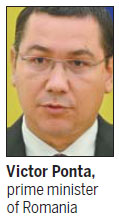
Most of Romania's nuclear facilities, which were mainly supported by the former Soviet Union, have been idle since 1989, according to Jia Ruixia, a European affairs researcher at the Chinese Academy of Social Sciences.
Jia said Romania needs capital and technology to upgrade aging equipment because its oil resources are running out.
"The fear of a possible decision by Russia to cut off oil and gas supplies to European countries is another reason for action," she said.
Ponta, the 42-year-old prime minister who is on his third visit to China, is seeking both energy alternatives and economic stimulus to offset the Ukraine crisis and the declining levels of government investment in Romania.
He told members of the media that Bucharest wants to cooperate in "agriculture, energy and infrastructure construction that will benefit both sides", and Romania trusts China's technology, products and equipment, all of which are highly competitive in those fields.
Romania's annual growth rate plummeted to 1.2 percent in the second quarter this year from 5.2 percent in the last quarter of 2013.
Jia said the cooperation agreements signed on Monday will help accelerate Romania's economic recovery and create more jobs.
Sino-Romanian trade stood at 1.4 billion euros ($1.84 billion) in the first half of this year, a 20.7 percent increase year-on-year. China is the second largest source of imports for non-EU countries.
Contact the writer at zhaoyinan@chinadaily.com.cn

 World's largest duty-free shop opens in China's Sanya
World's largest duty-free shop opens in China's Sanya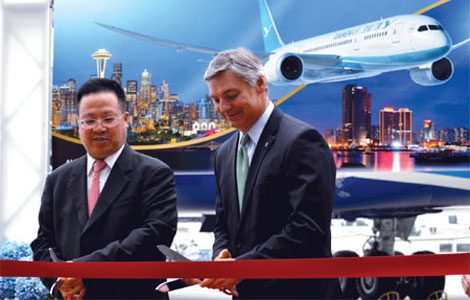
 Xiamen Air gets its first Dreamliner
Xiamen Air gets its first Dreamliner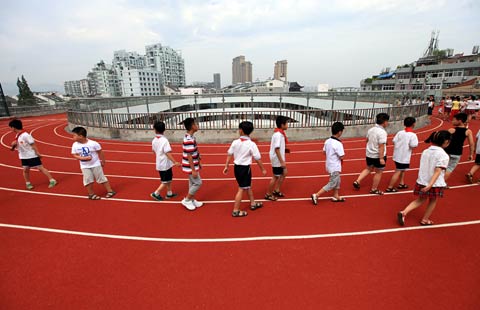
 Running track built on school roof
Running track built on school roof
 Expressions on the first day of new school
Expressions on the first day of new school
 Tomatina joy in Northeast China
Tomatina joy in Northeast China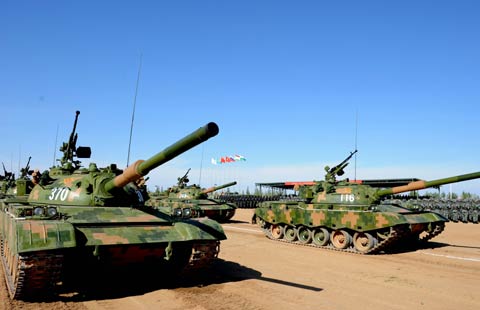
 Peace Mission - 2014 military drill ends in China's Inner Mongolia
Peace Mission - 2014 military drill ends in China's Inner Mongolia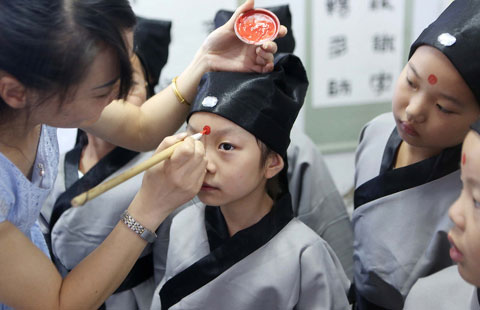
 First steps on a journey of discovery
First steps on a journey of discovery
 Garbage dump turns water into poison
Garbage dump turns water into poison
Most Viewed
Editor's Picks

|

|

|

|

|

|
Today's Top News
Beijing spruces itself up for APEC summit
New Budget Law to change the game
Microsoft asked to explain monopoly accusations
China makes largest share of foreign students
Chinese American to run NYC public schools' fund
US launches fresh air strikes on IS rebels
NPC decision a landmark in HK democratic development
Chui Sai On elected Macao chief executive-designate
US Weekly

|

|







